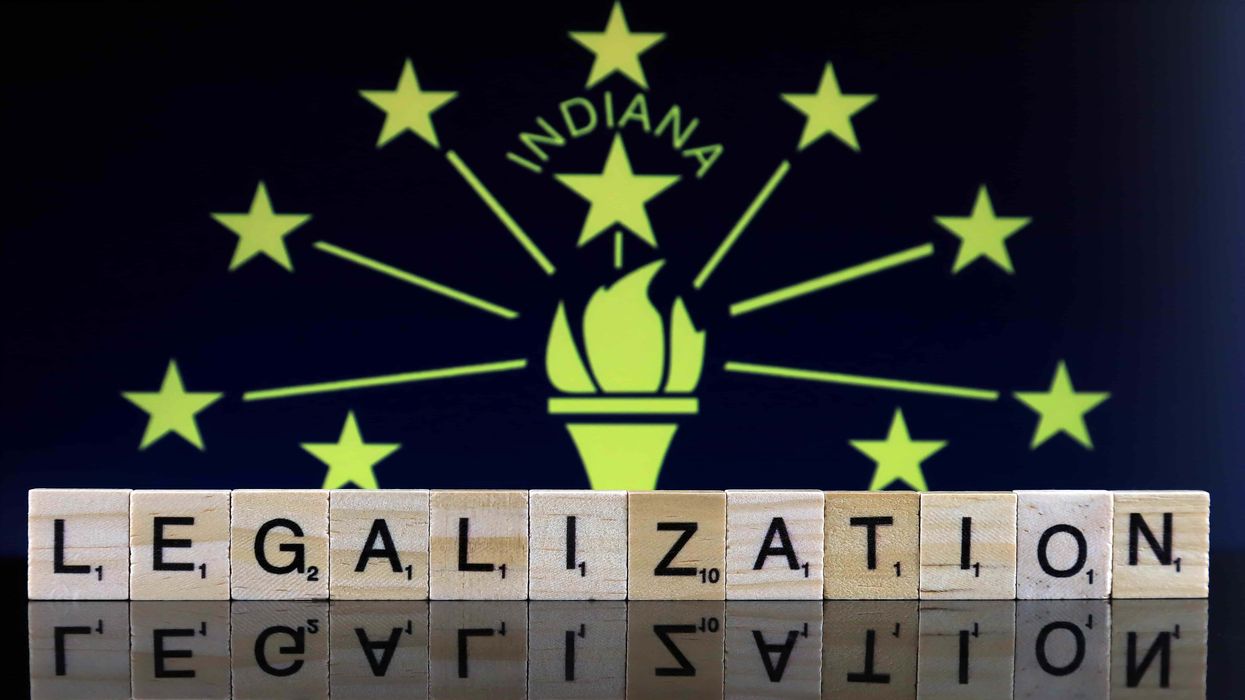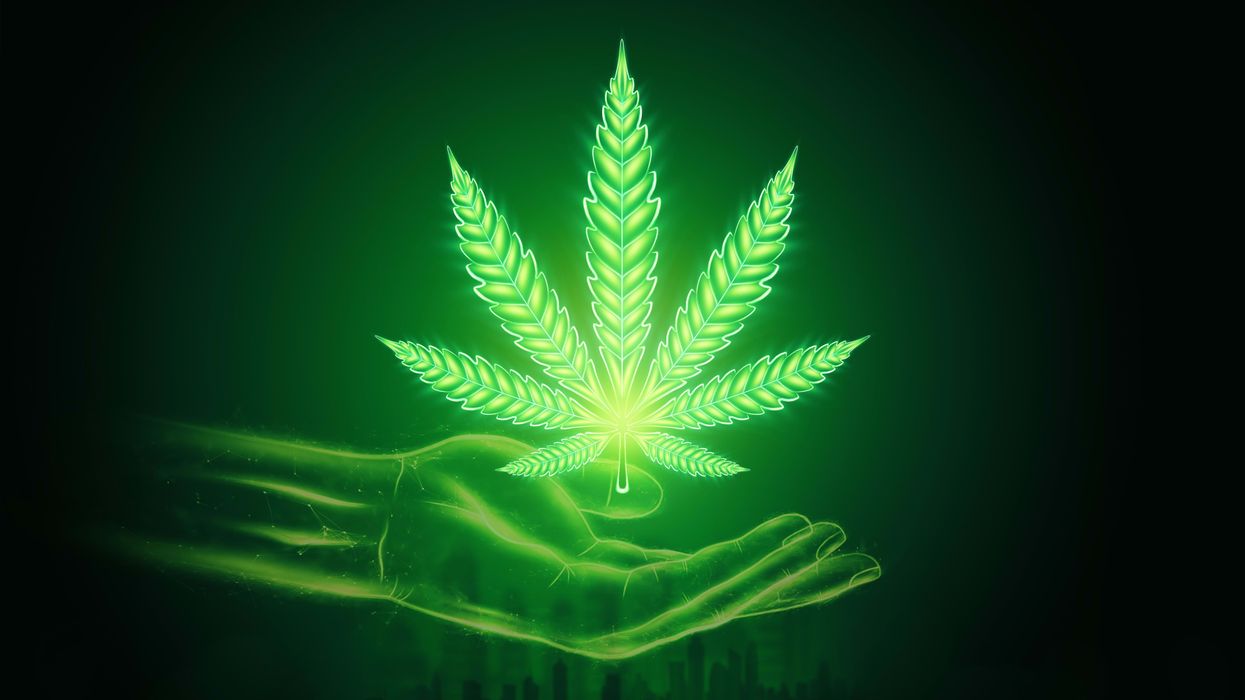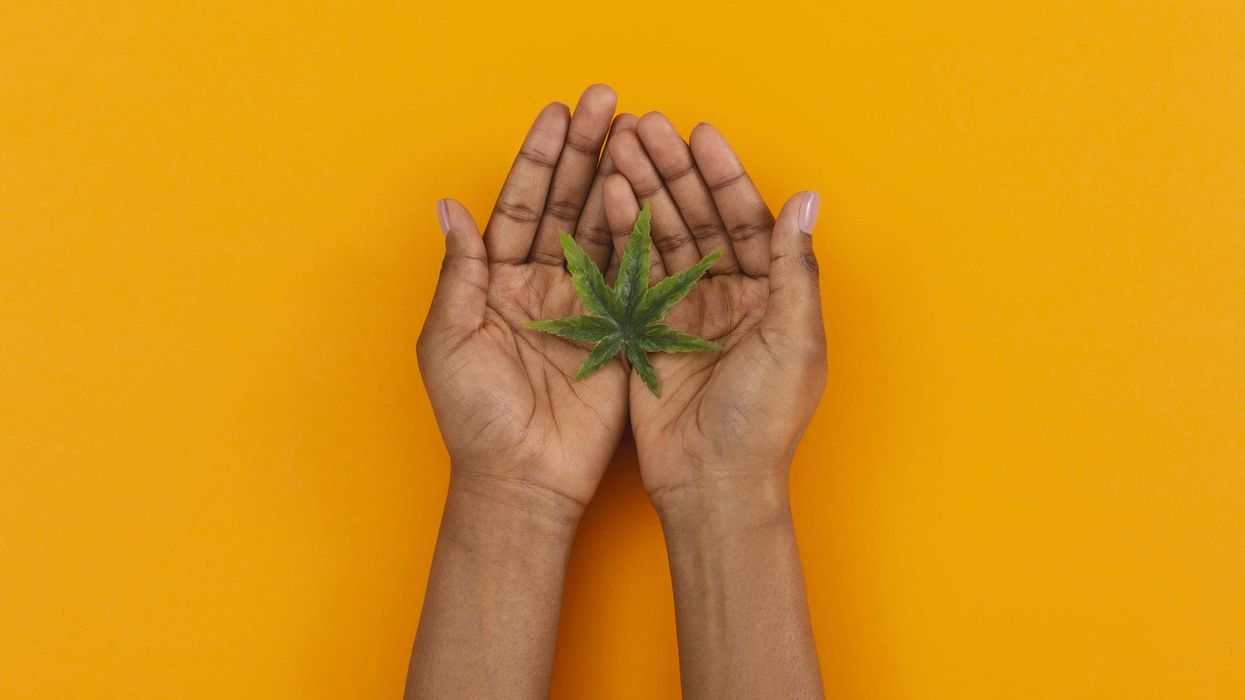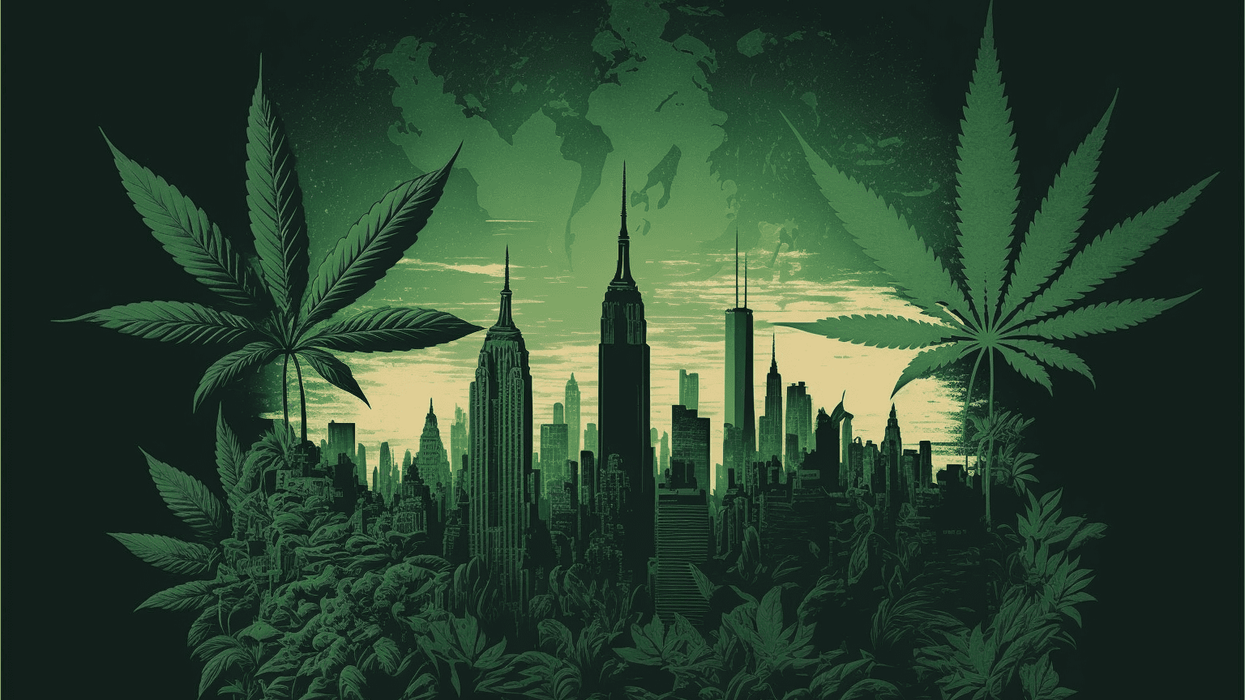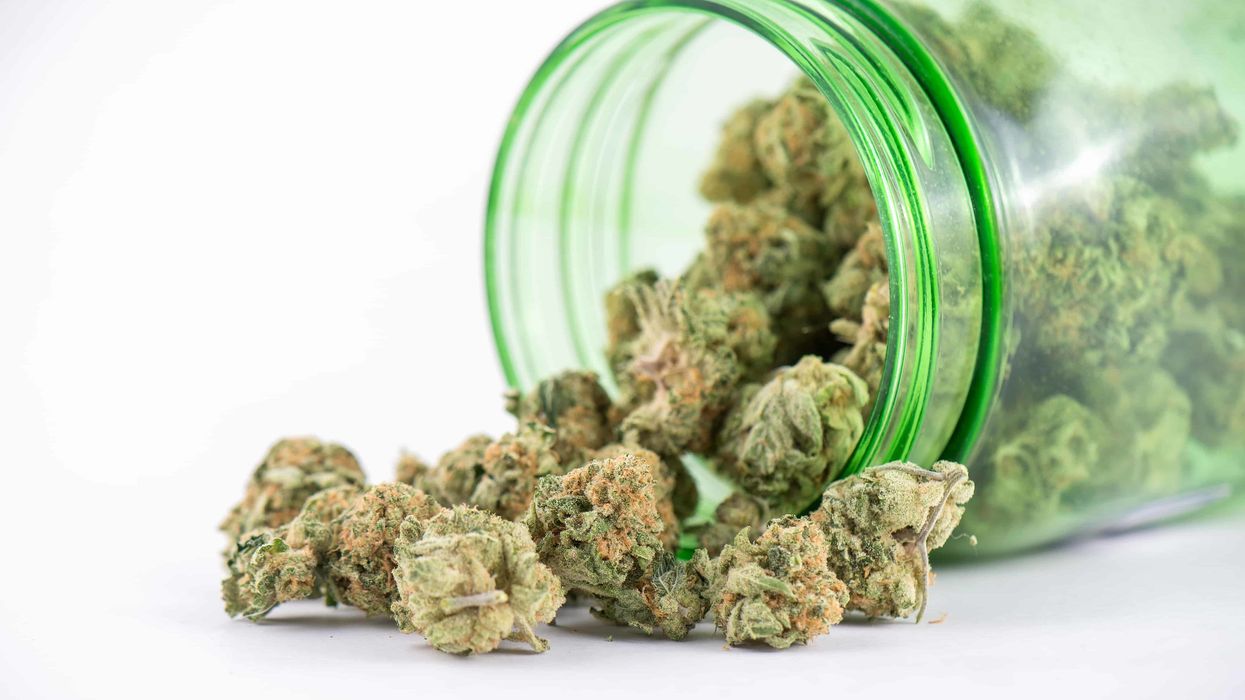As states throughout the U.S. continue to alter their cannabis laws, the Midwest, a region known for strict cannabis policy, is slowly changing its tune.
Although Indiana cannabis is fully restricted (aside from an extremely limited medical program), the pressure from its surrounding states’ recent amendments may begin to have some influence on the Hoosier State.
As of February 2021, Indiana state lawmakers are considering 10 different cannabis bills ranging from legalization, regulation, to decriminalization.
UPDATE: By the end of March, all but one of the bills had been rejected before even making it to committee.
What are the Current Cannabis Laws and Penalties in Indiana?
While some states other than Indiana continue to outlaw adult-use cannabis, most state governments have at least decriminalized the plant. However, Indiana has not even gotten to this point yet.
- It remains harshly illegal to possess cannabis--if you’re found with any on your person, even a simple joint, you risk jail time and a fine of up to $10,000 ($5,000 if you have less than 30 grams on your person).
- The laws against hash and concentrates are even harsher--if you’re caught with more than five grams on your person, you face a felony charge and a fine of up to $10,000.
- Aside from cannabis itself, Indiana also has strict laws in regards to cannabis paraphernalia. If you’re caught possessing, manufacturing, or distributing cannabis paraphernalia, you will also face jail time and a fine up to $10,000.
- These laws continue to be enforced in ways that promote racism, as Black people are still 3.5 times as likely as white people to be arrested and/or fined for cannabis possession in the state.
- Lawmakers have attempted to pass bills that at least decriminalize the plant, but these bills have failed to pass as recently as 2020’s legislative session.
Indiana’s Medical Cannabis Program
As for Indiana's medical cannabis program, it is easily one of the strictest and most unreasonable in the country.
After a few years of tireless effort from cannabis advocates, the first semblance of legal cannabis in Indiana came in 2017, when Governor Eric Holcomb signed Enrolled House Bill 1148.
This bill legalized low-THC CBD oil for patients with epilepsy. However, it clarified nothing in regards to how patients should purchase the CBD oil.
It wasn’t until March 21, 2018 when Holcomb signed Senate Enrolled Act No. 52, which legalized low-THC CBD derived from industrial hemp plants. This law allows any person to buy, possess, and/or sell CBD oil, assuming it meets specific labeling requirements and contains no more than 0.3 percent of THC. However, it remains unclear what the legality is in regards to manufacturing CBD oil in the state.
Although this law has been beneficial for those who suffer from seizures, it leaves a gaping hole for the several other qualifying conditions that most other states apply to their medical cannabis laws, like anxiety, depression, eating disorders, cancer, skin conditions, and more.
Patients in Indiana who suffer from these conditions remain in the dark when it comes to a natural solution that much of the rest of the country is allowed to implement.
This is a tiny step in the right direction, but no progress has been made since 2018, and there doesn’t seem to be much hope in the near future when it comes to cannabis legalization in Indiana.
The Future of Cannabis in Indiana
In a March 2020 interview with the Chicago Tribune, Indiana State Senator Karen Tallian recalls a teenager she represented back in 2010, who walked away with a criminal record after being busted for cannabis possession at a party.
The conviction followed the teenager into her teaching career when four years later, she was told by a superintendent where she worked that she should “find a new career.”
“I’ve offered every kind of discussion you could possibly think of,” Tallian told the Tribune. “Legislators all know that they’re going to have to have this conversation. The states are falling in line; I certainly hope that we’re not last. They know they have to have this conversation, but they just don’t want to.”
Tallian has introduced House Bill 1154, legislation that would legalize and regulate adult-use cannabis. If passed, the bill would allow adults to purchase up to an ounce of cannabis (and/or eight grams of concentrate) from a licensed dispensary. Adults would also be allowed to cultivate up to six plants for personal use.
Although senators and representatives within the state have voiced their support of cannabis legalization and agree that its continued criminal status hinders rather than helps, Governor Holcomb remains staunch in his opposition.
“The argument is if we use it medicinally, then we’ll use it recreationally. ... But it’s still illegal federally, and Gov. Holcomb has been very firm; he's not going to support any legislation until the federal government legalizes it,” State Representative Mike Karickhoff said in the same Tribune interview.
The journey to legalization of cannabis on a federal level has been just as harrowing as Indiana’s attempts. The Marijuana Opportunity, Reinvestment and Expungement (MORE) Act, which would decriminalize cannabis on a federal level, was first introduced to the House in 2018, but did not pass.
It was passed by the House Judiciary Committee in 2019, but failed to pass with the Senate. The Act was reintroduced and passed by the House again in 2020, but it remains undetermined how it will fare with the Senate this time around.
Even if it passes, cannabis would still technically be illegal on a federal level, so it’s hard to say how Indiana’s government might respond.
Despite the state government’s harsh viewpoint on the plant, polls conducted by Tallian revealed that about 90% of Hoosiers approve of medical cannabis use and about 80% approve of adult-use cannabis.
As with the rest of the country that has yet to legalize the plant, the real issue here lies with all of the people who’ve lost their jobs, served jail time, and/or had to pay ridiculous fines for utilizing a plant that brings a host of medical benefits to consumers--and very little negative effect. The continued manipulation of these laws to target People of Color is highly evident, yet little has been done to fix this obvious imbalance.
It’s also safe to say that Indiana’s concerns that legalizing cannabis would lead to drug abuse and higher rates of crime are simply unfounded when you take a look at the rest of the country. In fact, studies have revealed that in states where some form of cannabis is legalized, illicit use among teenagers has actually decreased.
Indiana’s harsh views on cannabis seem to be here to stay for the immediate future, but advocates within the state remain hopeful. As epileptic patients continue to benefit from CBD use and more studies and testimonies continue to compile, it’ll be harder and harder for the state to continue living in denial.
What is the History of Cannabis Legalization in Indiana?
The history of cannabis in the U.S. is a complicated one. The plant has been utilized throughout the world for millennia, and was viewed as a medicinal plant until the early 1900s.
This shift in viewpoint occurred because of racism against Mexican immigrants who fled to America due to unrest in Mexico, bringing with them “marijuana,” which they used more recreationally than most Americans were used to. Americans began applying a negative stigma to the term “marijuana,” and the states quickly began to outlaw the plant based on this racist paranoia and government propaganda.
Indiana outlawed the sale of cannabis without a prescription in 1913, one of the first states in the country to take such action. By the 1930s, Indiana had adopted some of the strictest laws in the U.S. in regards to cannabis.
The state has a history of taking an extremely conservative approach with most policies. The 18th amendment, which prohibited alcohol in the United States from 1920 to 1933, was already alive and well in Indiana by 1918, so it’s no surprise that cannabis has had a tough history with Hoosiers.
Are you still missing out on The Bluntness newsletter? Sign Up today to stay in the loop.
